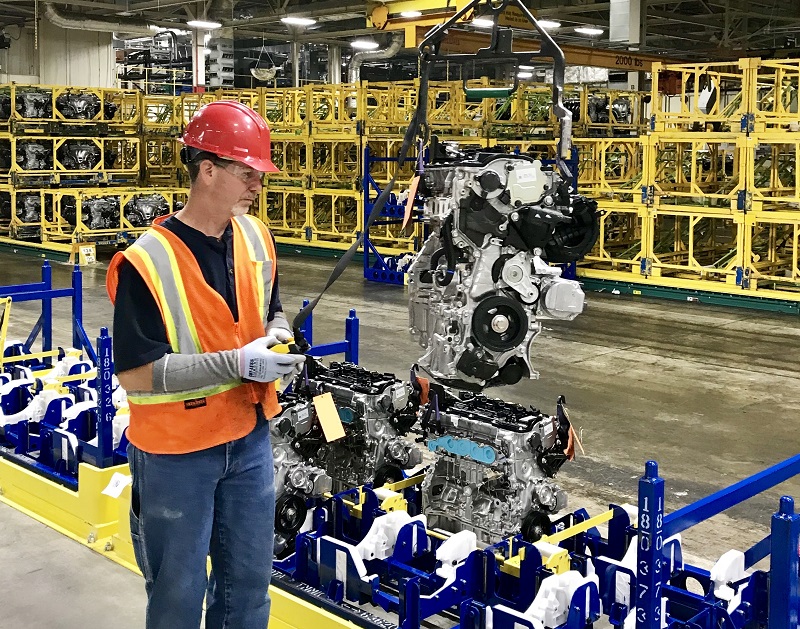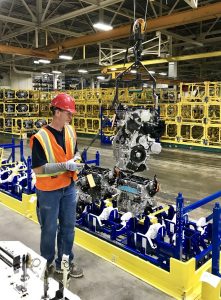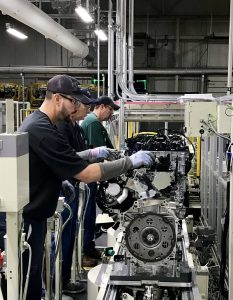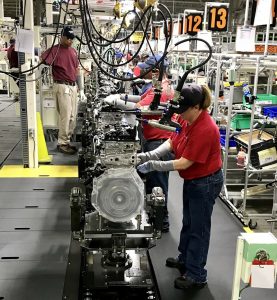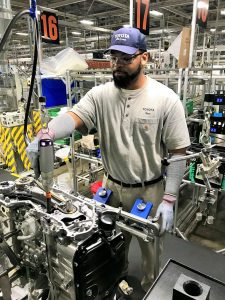HUNTSVILLE, Ala. (September 28, 2018) – Exactly one year after Toyota Alabama announced a $106 million investment to build the next generation of engines, the plant has built its first advanced, 4-cylinder engine.
Toyota New Global Architecture (TNGA) is a new approach to the way Toyota designs, engineers and produces its vehicles. While retaining traditional values such as exceptional quality and safety, the advanced engines produced using TNGA will have increased power performance, efficiencies and fuel economy. In designing the TNGA platform, engineers have repositioned and lowered the center of gravity of powertrain components. They’ve also focused on reducing the weight of the size of certain components, while at the same time increasing overall body rigidity thanks to higher strength materials and new laser welding techniques.
“I could not be prouder to reach this milestone,” said David Fernandes, Toyota Alabama President. “Launching our new TNGA engine is a true testament to our highly-skilled workforce. They are leading Toyota Alabama into the future of advanced engine production.”
Toyota’s engine plant in Huntsville is the only one in the world to build 4-cylinder, V-6 and V-8 engines under one roof. These new powertrain units will go into the RAV4 and Highlander, providing approximately 10 percent better power performance and approximately 20 percent better fuel economy. This supports the company’s goals to reduce fuel consumption and CO2 emissions.
Toyota Alabama has expanded four times since 2003, growing from 300 to over 1,400 team members. The new production line added 50 new jobs and increased total plant investment to nearly $1 billion.
The Huntsville plant is among Toyota’s largest engine facilities globally, producing more than more than 700,000 engines in 2017 for the RAV4, Highlander, Tacoma, Tundra and Sequoia. This breaks down to about 3,000 each day. One-third of the engines in North American-built Toyota vehicles were produced at the Huntsville plant. The plant also built its 6 millionth engine earlier this year.



